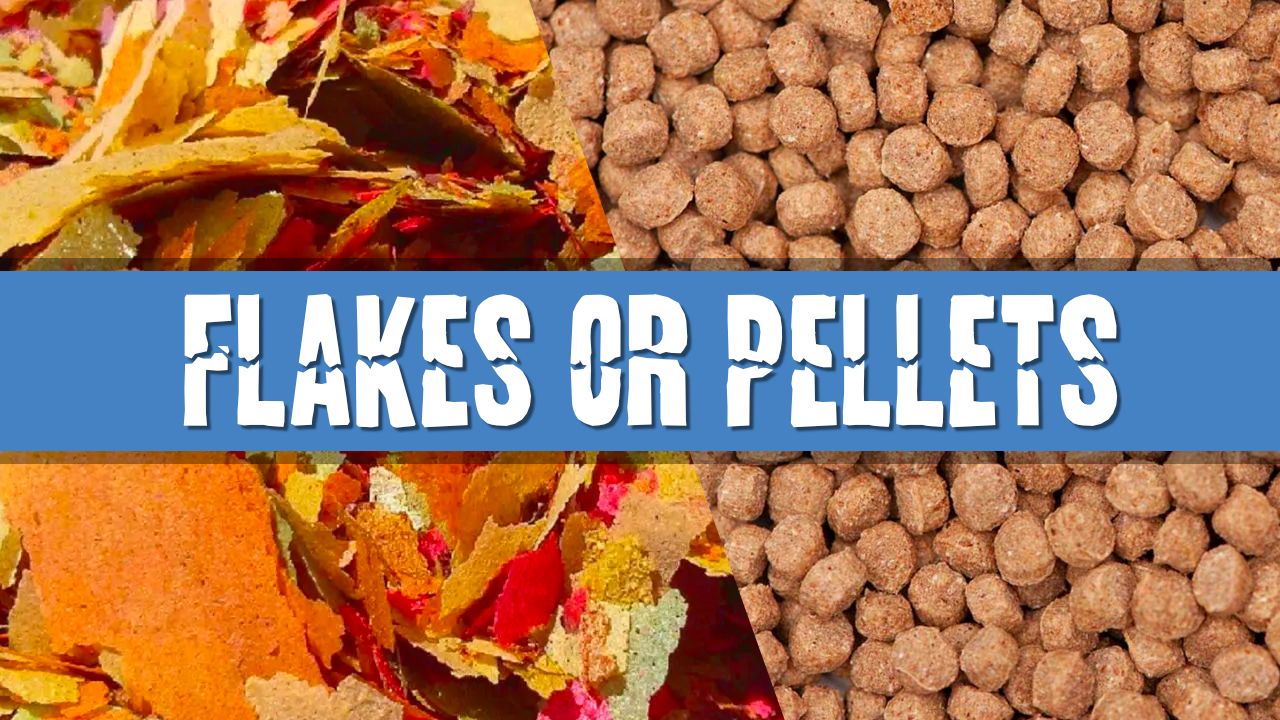Choosing the Right Fish Food for Your Tropical Fish: Pellets vs. Flakes
Feeding your tropical fish pellets or flakes largely depends on their size, species, and feeding habits. Both have pros and cons: flakes are suitable for top feeders but can cloud water, while pellets are ideal for bottom dwellers but may be too large for some fish.

As an aquarium enthusiast and a proud parent of numerous tropical fish, I'm often asked this question: should I feed my tropical fish pellets or flakes? The answer, like many things in the realm of fish care, is not as straightforward as you might think. The type of food you choose to give your tropical fish can significantly influence their health and lifespan.
The Debate: Pellets Vs Flakes
There are various factors to consider when deciding between pellets and flakes. Both have their own sets of advantages and disadvantages, and understanding these can help you make the best decision for your finned friends.
Flake foods are perhaps the most common type of food given to tropical fish. They are easy to use, widely available, and typically inexpensive. Plus, flakes float on the water surface for a while before sinking, making them suitable for both top and mid-level swimmers. However, a major downside is that they can easily cloud your water, leading to poor tank conditions if not managed correctly. This might warrant more frequent water changes and tank cleaning. Remember, maintaining a clean tank is crucial for the health of your tropical fish as discussed in our article on how to clean your aquarium glass.
On the other hand, pellets are denser and sink more quickly, making them an excellent option for bottom-dwelling species. They also dissolve slower than flakes, reducing the risk of water pollution. However, some fish might struggle to eat them due to their larger size.
Size, Species, and Dietary Preferences
The choice between pellets and flakes can often depend on the size, species, and dietary preferences of your tropical fish. Smaller fish might find it difficult to consume pellets, while larger species may prefer them. Similarly, species that feed on the surface may prefer flakes, whereas bottom dwellers might find sinking pellets more accessible.
Pay close attention to your fish's eating habits. If you notice your fish are not eating or seem uninterested in their food, it might be time to switch up their diet. Our article about why tank fish might not be eating can help you delve deeper into this topic.
Quality of the Food
Whether you choose flakes or pellets, the quality of the food should be your primary concern. Look for foods that contain high-quality proteins, like whole fish or shellfish. Additionally, a good fish food should have a balance of fats, carbohydrates, and micronutrients to ensure your fish get a balanced diet.
A Blend of Both?
So, is it possible to feed your tropical fish both pellets and flakes? Absolutely! Offering a varied diet can help ensure your fish are getting all the nutrients they need and can also make feeding time more exciting for them. A combination of pellets and flakes can be a great way to cater to different feeding levels within your aquarium.
Remember, no matter what food type you choose, overfeeding is a common issue that can lead to various problems such as poor water quality and health issues in fish. Our article about fish care discusses the best practices for feeding your aquarium pets.
If your tank only consists of Guppys / Tetras etc (top feeders), then choosing pellets would not be a good ideas.
In conclusion, when deciding between pellets and flakes, consider your fish's size, species, and feeding habits, as well as the quality of the food. And remember, variety is the spice of life – a mixed diet can offer your fish the diverse nutrients they need to thrive.

